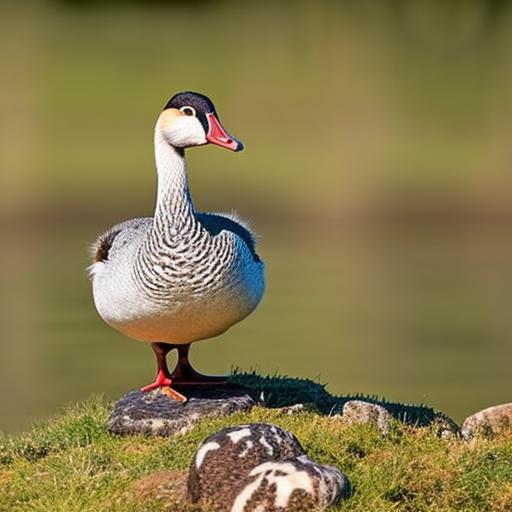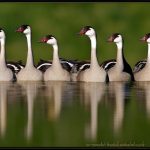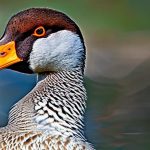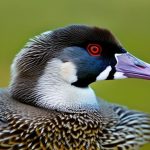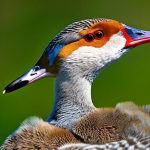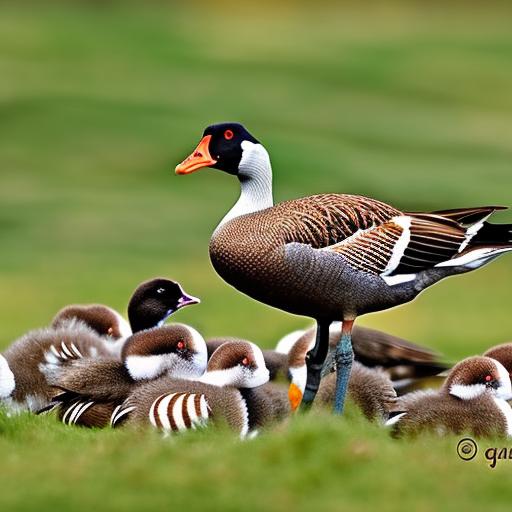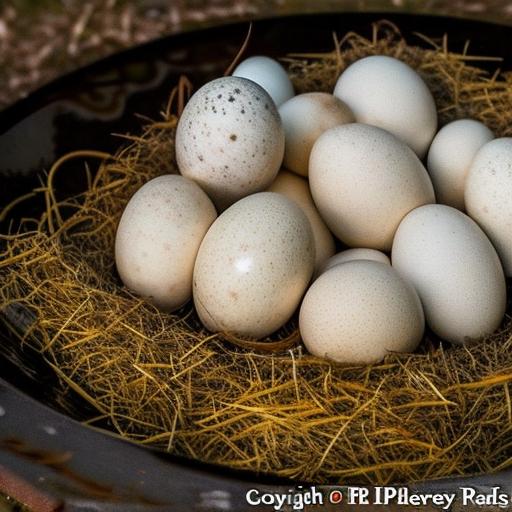Domesticated geese breeds have been a part of human civilization for thousands of years. These birds have been raised for various purposes, including meat, eggs, feathers, and even as pets. There are several different breeds of domesticated geese, each with its own unique characteristics and qualities. People raise domesticated geese breeds for a variety of reasons, including their usefulness on farms, their beauty, and their ability to serve as effective pest control.
Key Takeaways
- Domesticated geese breeds have been raised for thousands of years for their meat, eggs, and feathers.
- The most popular domesticated geese breeds include the Toulouse, Embden, and Chinese breeds.
- Domesticated geese breeds are larger and more docile than their wild counterparts.
- Raising domesticated geese can provide benefits such as pest control and fertilizer production.
- Proper housing, feeding, and health care are important for the well-being of domesticated geese breeds.
History of Domesticated Geese Breeds
The domestication of geese can be traced back to ancient times. It is believed that the Egyptians were the first to domesticate geese around 4,000 years ago. Geese were highly valued in ancient Egypt for their meat and feathers, and they were often depicted in artwork and hieroglyphics. Over time, domesticated geese breeds spread to other parts of the world, including Europe and Asia.
Throughout history, domesticated geese breeds have evolved and adapted to different environments and human needs. Selective breeding has resulted in the development of various breeds with distinct characteristics. For example, some breeds have been bred for their large size and meat production, while others have been bred for their egg-laying abilities or ornamental qualities.
Characteristics of Domesticated Geese Breeds
Domesticated geese breeds come in a variety of sizes, colors, and patterns. They typically have long necks, webbed feet, and a stout body. The feathers of domesticated geese can range from pure white to various shades of gray and brown. Some breeds also have distinctive markings or patterns on their feathers.
In terms of behavior, domesticated geese are known for their strong flocking instinct. They are social animals that prefer to live in groups and can become quite attached to their human caretakers. Geese are also known for their loud honking calls, which they use to communicate with each other and to warn of potential danger.
In terms of temperament, domesticated geese can vary widely depending on the breed and individual bird. Some geese are known to be friendly and docile, while others can be more aggressive and territorial. It is important for those considering raising geese to choose a breed that matches their needs and preferences.
Popular Domesticated Geese Breeds
There are several popular breeds of domesticated geese, each with its own unique characteristics and qualities. Some of the most well-known breeds include the Toulouse, Embden, and African geese.
The Toulouse goose is one of the largest domesticated geese breeds. It has a calm and friendly temperament, making it a popular choice for those looking for a pet or ornamental bird. The Toulouse goose is also known for its excellent meat production.
The Embden goose is another popular breed known for its large size and meat production. It has a pure white plumage and a friendly disposition. The Embden goose is also a good egg layer, making it a versatile breed for those looking to raise geese for both meat and eggs.
The African goose is a smaller breed known for its striking appearance. It has a black head and neck, with a white body and orange bill. The African goose is known for its excellent egg-laying abilities and its ability to serve as an effective guard animal due to its loud honking calls.
Differences between Wild and Domesticated Geese Breeds
There are several key differences between wild and domesticated geese breeds. These differences can be seen in their physical characteristics, behavior, and habitat preferences.
In terms of physical differences, domesticated geese breeds are often larger and heavier than their wild counterparts. This is due to selective breeding for increased size and meat production. Domesticated geese also tend to have more varied plumage colors and patterns compared to wild geese, which are typically gray or brown.
In terms of behavior, domesticated geese breeds are more social and less migratory than wild geese. Domesticated geese are often raised in flocks and are accustomed to human interaction. Wild geese, on the other hand, are more independent and tend to migrate long distances in search of food and suitable breeding grounds.
In terms of habitat preferences, domesticated geese breeds are adaptable to a wide range of environments, including farms, suburban areas, and even urban settings. Wild geese, on the other hand, prefer natural habitats such as wetlands, lakes, and rivers.
Benefits of Raising Domesticated Geese Breeds
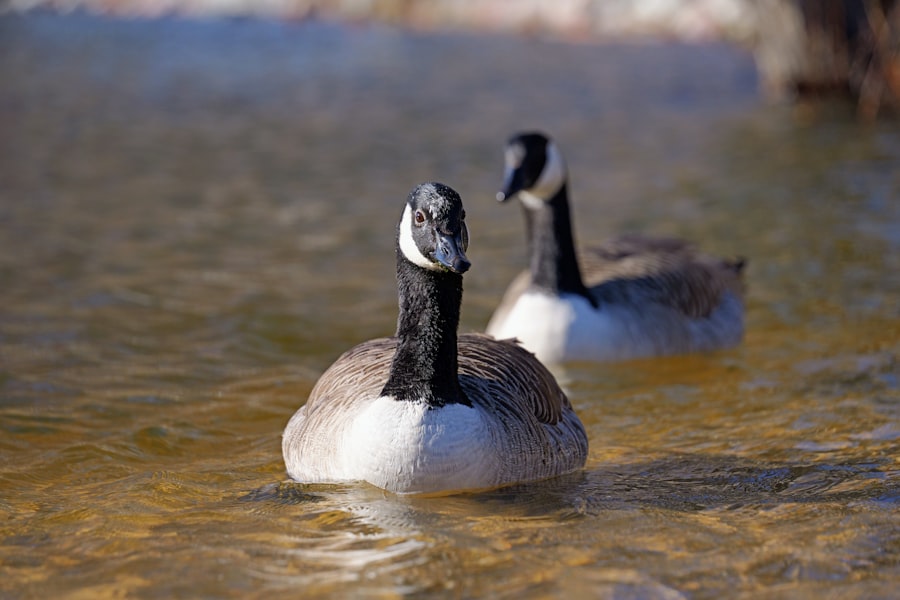
There are several benefits to raising domesticated geese breeds. One of the main benefits is their ability to provide a sustainable source of food. Geese are excellent meat producers and can provide a source of lean protein for those looking to raise their own food. Additionally, geese are also good egg layers and can provide a source of fresh eggs.
Another benefit of raising domesticated geese breeds is their ability to serve as effective pest control. Geese are natural grazers and can help keep grass and weeds under control. They can also help control pests such as slugs and snails, which can be detrimental to gardens and crops.
Furthermore, domesticated geese breeds can also serve as effective lawn maintenance tools. Their constant grazing can help keep lawns trimmed and free from overgrowth. This can be particularly beneficial for those with large properties or those looking for an alternative to traditional lawn mowing methods.
Housing and Feeding Domesticated Geese Breeds
When it comes to housing domesticated geese breeds, it is important to provide them with a safe and secure environment. Geese require shelter from the elements, as well as protection from predators. A sturdy and well-ventilated shelter is essential, with enough space for the geese to move around comfortably.
In terms of feeding, domesticated geese breeds have specific dietary requirements. They require a balanced diet that includes a mix of grains, greens, and protein. Commercially available goose feed can be supplemented with fresh fruits and vegetables, as well as access to fresh water for drinking and bathing.
It is also important to provide geese with access to a suitable grazing area. Geese are natural grazers and require access to grass and other vegetation for optimal health. Providing a fenced-in area for grazing can help ensure that geese have access to fresh food while also protecting them from potential predators.
Health Concerns for Domesticated Geese Breeds
Like any other animal, domesticated geese breeds are susceptible to certain health issues. Some common health concerns for geese include respiratory infections, parasites, and foot problems. It is important to monitor the health of geese regularly and seek veterinary care if any issues arise.
Preventative measures can also be taken to keep geese healthy. This includes providing a clean and sanitary living environment, regular grooming and cleaning of feathers, and regular deworming and vaccination protocols. Additionally, providing a balanced diet and ensuring access to fresh water can also help prevent health issues in geese.
If any health concerns arise, it is important to seek veterinary care promptly. A veterinarian with experience in avian medicine can provide the necessary treatment and guidance to ensure the health and well-being of domesticated geese breeds.
Breeding and Reproduction of Domesticated Geese Breeds
Breeding and reproduction in domesticated geese breeds typically occurs in the springtime. Geese are monogamous animals, meaning they form long-term pair bonds with a mate. Mating behavior in geese involves elaborate courtship displays, including head bobbing, wing flapping, and honking.
Once a pair has formed, the female goose will lay a clutch of eggs. The number of eggs laid can vary depending on the breed, but it is typically between 5 and 12 eggs. The female will then incubate the eggs for about 28 to 30 days until they hatch.
Caring for goslings is an important part of raising domesticated geese breeds. Goslings require warmth, protection, and a balanced diet to grow and develop properly. They should be kept in a brooder with a heat source until they are old enough to regulate their body temperature. Goslings also require a diet that is high in protein to support their rapid growth.
Conclusion and Future of Domesticated Geese Breeds
In conclusion, domesticated geese breeds have a long history of being raised for various purposes. They are versatile animals that can provide food, pest control, and lawn maintenance. There are several popular breeds of domesticated geese, each with its own unique characteristics and qualities.
The future of domesticated geese breeds looks promising, as more people become interested in sustainable living and self-sufficiency. Raising geese can be a rewarding experience for those willing to put in the time and effort to care for these birds. With proper housing, feeding, and healthcare, domesticated geese breeds can thrive and provide numerous benefits to their owners.
For those interested in raising geese, it is important to research the specific breed and its requirements before getting started. Understanding the needs and characteristics of the breed will help ensure a successful and enjoyable experience. Whether for meat production, egg-laying, or simply as pets, domesticated geese breeds can be a valuable addition to any farm or homestead.
If you’re interested in learning more about domesticated geese breeds, you might find this article on how to care for goslings from Poultry Wizard quite helpful. It provides valuable insights and tips on raising healthy and happy goslings. Whether you’re a beginner or an experienced goose breeder, this article offers practical advice on feeding, housing, and general care for your geese. Check it out here to ensure you’re providing the best care for your geese.
FAQs
What are domesticated geese breeds?
Domesticated geese breeds are breeds of geese that have been selectively bred by humans for specific traits such as meat production, egg-laying, or ornamental purposes.
What are some common domesticated geese breeds?
Some common domesticated geese breeds include Toulouse, Embden, African, Chinese, and Sebastopol.
What is the difference between a domesticated goose and a wild goose?
Domesticated geese have been selectively bred by humans for specific traits, while wild geese have not. Domesticated geese are also typically larger and less agile than wild geese.
What are domesticated geese used for?
Domesticated geese are used for a variety of purposes, including meat production, egg-laying, weed control, and as ornamental birds.
What is the lifespan of a domesticated goose?
The lifespan of a domesticated goose can vary depending on the breed and living conditions, but they typically live between 10 and 25 years.
What is the average size of a domesticated goose?
The average size of a domesticated goose can vary depending on the breed, but they typically weigh between 10 and 20 pounds and can be up to 3 feet long.
What is the temperament of domesticated geese?
The temperament of domesticated geese can vary depending on the breed and individual bird, but they are generally social and can be protective of their flock. Some breeds are also known for being more docile and friendly than others.
What is the best way to care for domesticated geese?
Domesticated geese require access to water for swimming and drinking, a balanced diet of grains and greens, and shelter from the elements. They also require regular veterinary care and protection from predators.
Meet Walter, the feathered-friend fanatic of Florida! Nestled in the sunshine state, Walter struts through life with his feathered companions, clucking his way to happiness. With a coop that’s fancier than a five-star hotel, he’s the Don Juan of the chicken world. When he’s not teaching his hens to do the cha-cha, you’ll find him in a heated debate with his prized rooster, Sir Clucks-a-Lot. Walter’s poultry passion is no yolk; he’s the sunny-side-up guy you never knew you needed in your flock of friends!

